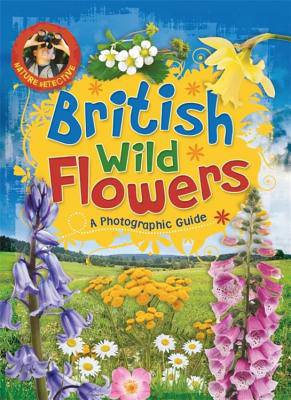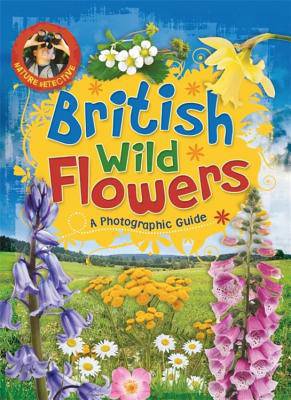
En raison d'une grêve chez bpost, votre commande pourrait être retardée. Vous avez besoin d’un livre rapidement ? Nos magasins vous accueillent à bras ouverts !
- Retrait gratuit dans votre magasin Club
- 7.000.000 titres dans notre catalogue
- Payer en toute sécurité
- Toujours un magasin près de chez vous
En raison de la grêve chez bpost, votre commande pourrait être retardée. Vous avez besoin d’un livre rapidement ? Nos magasins vous accueillent à bras ouverts !
- Retrait gratuit dans votre magasin Club
- 7.000.0000 titres dans notre catalogue
- Payer en toute sécurité
- Toujours un magasin près de chez vous
12,95 €
+ 25 points
Description
An easy-to-follow identification guide for children to more than 50 of the most common wild flowers found in Britain today.
Concise and clear descriptions of distinguishing features such as colour, leaf size and shape, habitat, berries and flowers, will help you to recognise which flower is which. Beautiful, large colour photographs will help make identification easy. Includes information about the parts of a flower, plant life cycles, photosynthesis and looks at why wild flowers need to be protected. Follow a fun and simple step-by-step activity to make your own wild flower window-box, hanging basket or garden. Become a nature detective and explore the natural world around you. If you enjoy this book, then why not search out the other titles in this series: British Birds; British Mammals; British Trees; British Insects; British Butterflies; Urban Widlife and British Seashore. Features the following flowers: Common Mallow; Red Campion; Ragged-Robin; Field Bindweed; Heather; Rosebay Willowherb, Foxglove; Harebell; Common Comfrey; Tufted Vetch; Teasel; Spear Thistle; Common Poppy; Scarlet Pimpernel; Meadow Buttercup; Creeping Buttercup; Common Bird's-foot-trefoil; Dandelion; Perforate St John's Wort; Tansy; Wild Daffodil; Yellow Iris; Lesser Celandine; Marsh-marigold; Shepherd's Purse; Cuckoo Flower; Dog-Rose; Bramble; Wild Strawberry; Meadowsweet; Cow Parsley; Hemlock; Yarrow; White Clover; Common Daisy; Oxeye Daisy; Garlic Mustard; Ramsons; Wood Anemone; Lily-of-the-Valley; Common Snowdrop; Cleavers; Stinging Nettle; White Deadnettle; Field Forget-Me-Not; Viper's Bugloss; Bluebell; Cornflower.Spécifications
Parties prenantes
- Auteur(s) :
- Editeur:
Contenu
- Nombre de pages :
- 64
- Langue:
- Anglais
- Collection :
Caractéristiques
- EAN:
- 9780750293273
- Date de parution :
- 08-11-16
- Format:
- Livre broché
- Format numérique:
- Trade paperback (VS)
- Dimensions :
- 149 mm x 207 mm
- Poids :
- 145 g

Les avis
Nous publions uniquement les avis qui respectent les conditions requises. Consultez nos conditions pour les avis.






